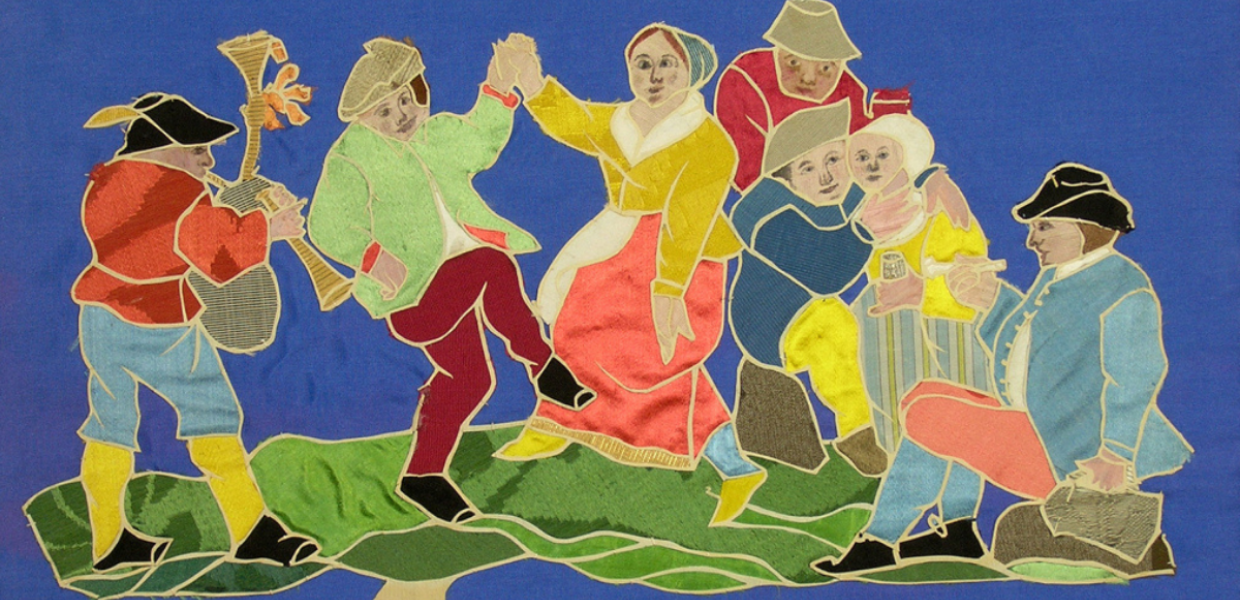About the WEAVE project
The Europeana Generic Services project WEAVE - Widen European Access to Cultural Communities via Europeana - will work to provide guidelines for linking and presenting this relationship, and support efforts to make the rich cultural heritage of different cultural communities more accessible by helping them to share their content with Europeana. Under the project, some communities and organisations will work with Europeana for the first time - including the Roma community represented by ERIAC, traditional Portuguese dance groups, represented by PEDEXUMBO, and the tourism destination management organisations of Slovenia.
By supporting efforts to make the cultural heritage of these communities more accessible and providing a framework for future communities to use as well, WEAVE will help to preserve the richness of European identity and work towards a more inclusive representation of cultural diversity in content hosted on europeana.eu.
The project will also support activities which build capacity for cultural heritage institutions, SMEs, cultural communities and Europeana to work together by creating the WEAVE Toolkit, which will employ a mix of AI, machine learning, natural language processing, big data analysis and innovative interface engineering. It will allow the management of annotations, semi-automatic recognition of specific gestures and movements and visualisation of performances and 3D models. WEAVE aims to use the WEAVE Toolkit to support CHIs to promote collections that may otherwise remain hidden, in educational and destination tourism contexts.
Furthermore, the project partners will engage Europeana audiences with tangible and intangible stories and editorials from cultural communities on the Europeana website.
Events to support cultural heritage institutions
Between October 2021 and January 2022, the WEAVE project will host 11 LabDays, collaborative workshops where participants can learn, reflect and share through an open dialogue between presenters and participants. These events are for professionals working in and around cultural heritage, especially those who work at institutions that have cultural heritage content or collections relating to groups that are historically repressed, underrepresented, disenfranchised, and disempowered. The LabDays will cover a range of topics, bringing together discussions around digital technologies and 3D modelling, innovative solutions and inspiring practices for cultural and minoritised communities.
In February 2022, there will also be a series of three Europeana WEAVE Cafés for cultural heritage professionals on the topics of diversity and inclusion. These sessions will provide an opportunity for participants to get a better understanding and inspire each other on how cultural institutions can support more diverse and inclusive practices. These sessions will be carefully planned and moderated by WEAVE partners with the support of Europeana Foundation Diversity Inclusion Cross-Team to facilitate a safe space for conversations.
Rosemary (Rosa) Cisneros, who is leading capacity building activities for the WEAVE project, says, 'These sessions will provide an opportunity to the participants to get a better understanding and inspire each other on how cultural institutions can support a more diverse and inclusive sector as well as giving cultural communities and minoritised communities a voice in the cultural sector.'
We’ll be announcing the dates of the Europeana WEAVE cafes through social media soon. So keep an eye out there and on the European Events page.
Join the next LabDay
We’re excited to announce the next LabDay in our series will take place on 18 October 2021, and will offer cultural heritage professionals the opportunity to learn more about working with Europeana, exploring how institutions can open their collections through Europeana so that they can be shared with wider audiences and enhance access to diverse content. The event will also touch upon Europeana’s efforts to be more inclusive and diverse in its approach to heritage collections, and encourage cultural heritage professionals to learn more about how WEAVE is supporting the representation of historically marginalised and underrepresented groups in Europeana.


